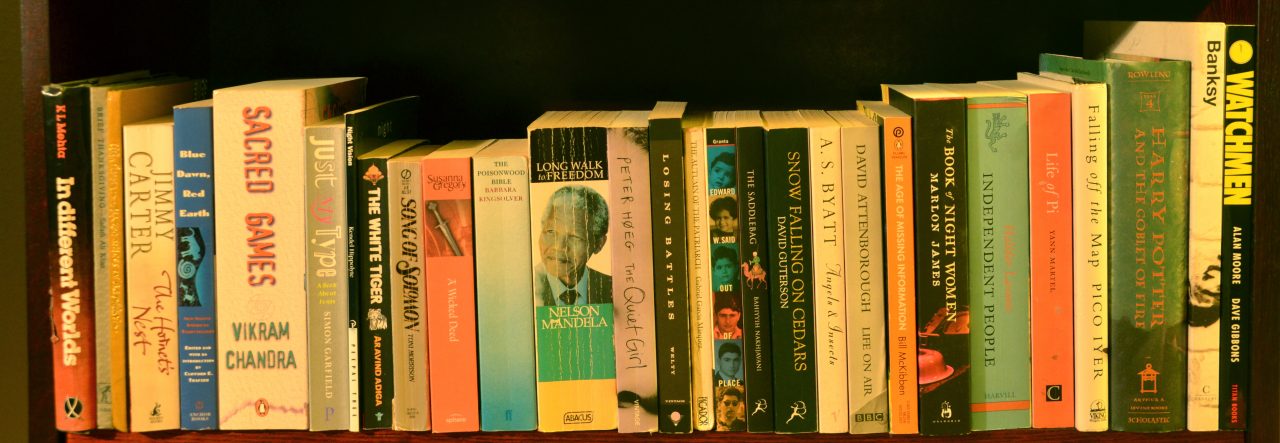Translated from Arabic by Marilyn Booth
Published by Sandstone Press, 2018, 256 pages. Original version published in 2010.

Celestial Bodies is a novel by Omani writer Jokha Alharthi that won the Man Booker International Prize in 2019. This makes it unusual—there aren’t a lot of books by Omani writers translated into English, and this is the first novel written originally in Arabic to win the prize.
The novel tells the story of a family the village of al-Awafi, and through their lives, shows the shifts in attitudes and changes taking place in Oman over three generations. Azzan and Salima have three daughters: Mayya, constantly bent over her sewing machine, bookish Asma and beautiful Khawla. When the book starts, Mayya has just been told she is getting married to Abdullah, a businessman. She is in love with her cousin and doesn’t want to marry Abdullah, but doesn’t feel she has a choice.
Abdullah falls in love with Mayya when he sees her absorbed in her sewing. Like her, he is bound by family—he has a violent father who decides the direction Abdallah’s life will take. Abdullah takes care of his father, but he is also afraid of him, a fear that is so deeply ingrained that it becomes a part of who he is. It is not only the women who are oppressed. Abdullah is caught between wanting to break free and needing to do his duty by his father.
The other two sisters have a bit more of a say in their marriages. Asma agrees to marry Khalid, who has been chosen for her, after giving it some thought. She makes the decision with her head, thinking that Khalid will support her in finishing her studies, which he does. Khawla refuses Khalid’s brother, saying she is promised to her cousin, a childhood sweetheart. She waits for him to return from Canada, and he turns out to be a wastrel but she marries him anyway.
It was customary for families to own slaves, some of whom worked in the house as domestic help, like Zarifa, owned by Abdullah’s father. She is also his mistress and a surrogate mother to Abdullah. After Abdullah’s mother disappears when he is very young, Zarifa raises him, and she is the one person he is close to.
When slavery is abolished in 1970, Zarifa’s son strikes out for himself, much to his mother’s dismay. He tries to explain to her that no one can own them anymore, that they are free to do as they please, but she will not leave her old master.
This is a fascinating glimpse into the lives of Omanis, and the changes that happened over the years. Mayya names her daughter London in spite of opposition from everyone, including Abdallah. It was as if she focused her yearning for other places, for a wider world on her daughter; it was a promise to her child that she will have the opportunities that Mayya never had. And by the time London grows up, things have changed, and she does have more freedom than her mother had.
The book moves back and forth between first-person and third-person narrative. The only character who tells his own story is Abdullah. You see the marriage from his point of view and follow his search for the truth about what really happened to his mother. All the other chapters focus on a particular character in turn. Time is also flexible, moving between the past, present and future, all sometimes with the same chapter. It’s not a device often used and has the effect of a multi-faceted piece, where you get to see the whole picture at once.
